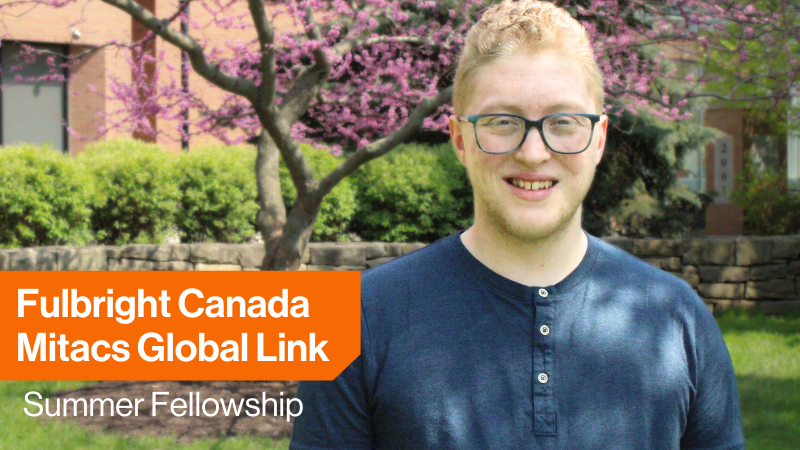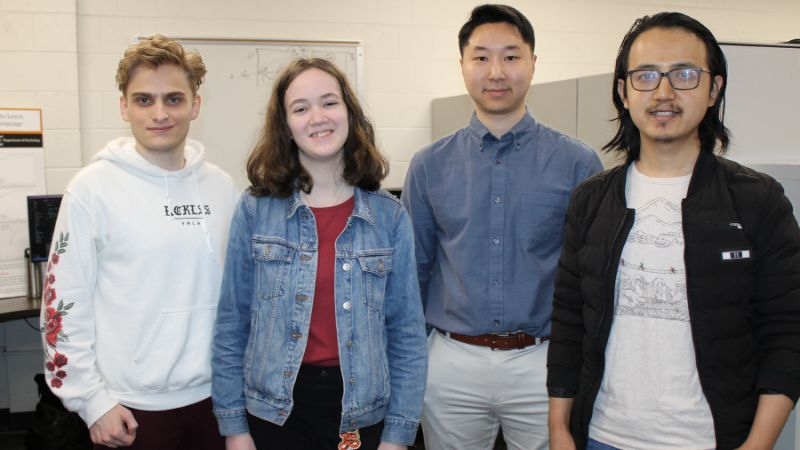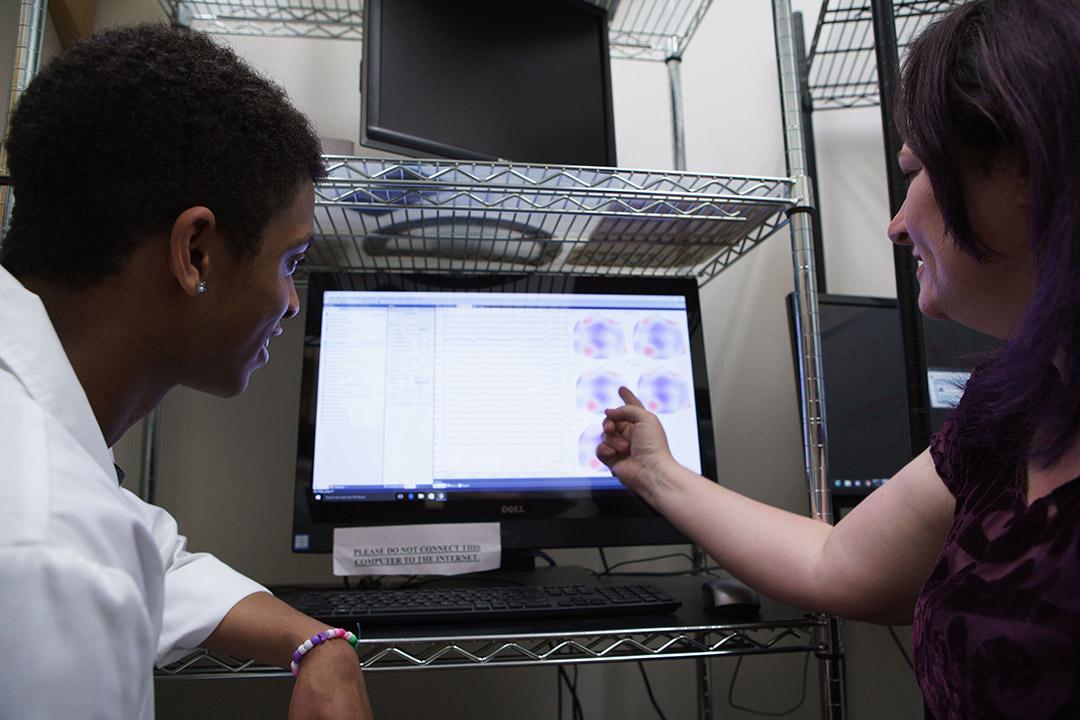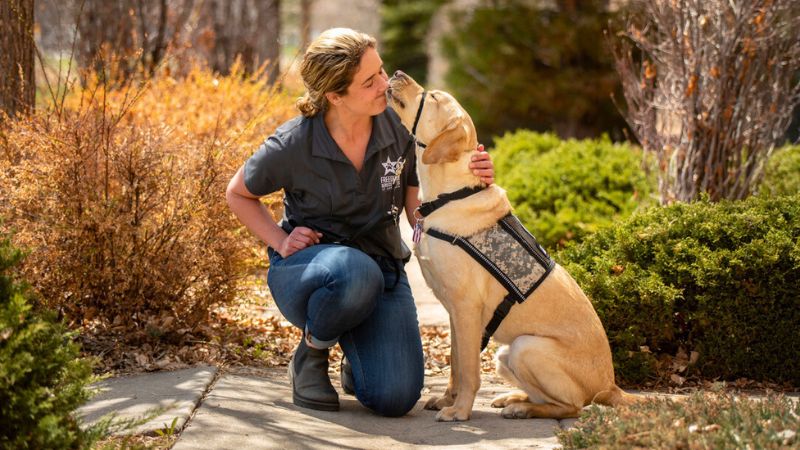Student Tackles the Effects of COVID on Child Development
Psychology major Finn Cohen embarks on a transformative Fulbright fellowship in Canada to investigate the effects of digital media on young children's development during COVID.

The effects of digital media on the development of young children during COVID will be the focus of research Finn Cohen (psychology BS with communication immersion, ‘24) will contribute to this summer during a Fulbright Mitacs fellowship at Université de Sherbrookein Québec, Canada.
“During my time in Canada, I hope to advance myself both personally and professionally: professionally by gaining critical new research skills through exposure to a new academic environment and personally through the chance to live independently and become exposed to new cultures and experiences,” said Cohen. “I feel so honored to have earned this opportunity and I don’t think it would’ve been possible without my wonderful mentors Dr. Houston and Dr. Baschnagel in the College of Liberal Arts.”
Cohen's first study abroad experience was in high school. “I found it to be one of the best experiences of my life, so I was eager for another chance,” he said. “I have no doubt this experience will prove to be invaluable, and I’m excited to see what it has in store.”
While the Fulbright program provided a path for Cohen’s study abroad experience this summer, the College of Liberal Arts offers many other options for short- and long-term study abroad, including its Go Grant and Student Travel Fund, which offer funding to offset expenses.
Learn more about RIT’s College of Liberal Arts study abroad options >
How have RIT’s experiential learning options like research, co-ops, or study abroad affected your education and career path?
“At RIT, I conduct research in two different labs: the Health and Addictions Research Center (HARC) and the Neurobehavioral Lab. These two labs have gone a long way to define my experience at RIT. Not only have they given me so many valuable opportunities on my journey to my future career and grad school, but I have also met some of my best friends and mentors there. I don’t think I would’ve made it to where I am today without my time in these labs.”
Why did you decide to major in psychology?
“I actually came into RIT under a different major but came to realize it wasn’t what I was looking for. I wanted something that offered more hands-on opportunities to feel like I was making a difference. I ended up diving into some literature in psychology and reading about a study about those leaving in-patient care and how a simple follow-up postcard from the hospital they had been at significantly improved patient outcomes. I was so moved by the idea that something so small could make such a big difference and changed my major to psychology, and I am very glad I did because I feel so at home in the psychology department.”
What makes RIT’s psychology program different from the rest?
“Having a technical background has helped me become more digitally literate than the average person. In my summer Fulbright internship, I am conducting data analysis which many of my experiences at RIT prepared me for. In my lab at RIT, we have also been lucky to have student teams help us create apps to assist in our research, an opportunity many other labs at different universities don’t get.”
How has your RIT education equipped you for success?
“The support of those in the psychology department has defined my success. My mentors, Dr. Houston and Dr. Baschnagel, are endlessly supportive of me in my endeavors at and beyond RIT. They help guide me in my research and classes, but also in things like graduate applications and conference presentations. I have also been greatly supported by those working in the psychology department office, Lisa and Molly. Lisa, in particular, was there for me all of last summer when I was on campus conducting research and helped me figure out registering my co-op and getting everything organized for my success.”












